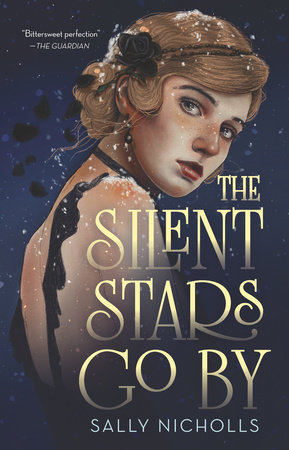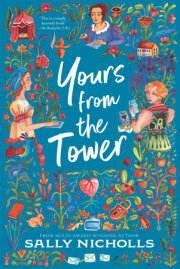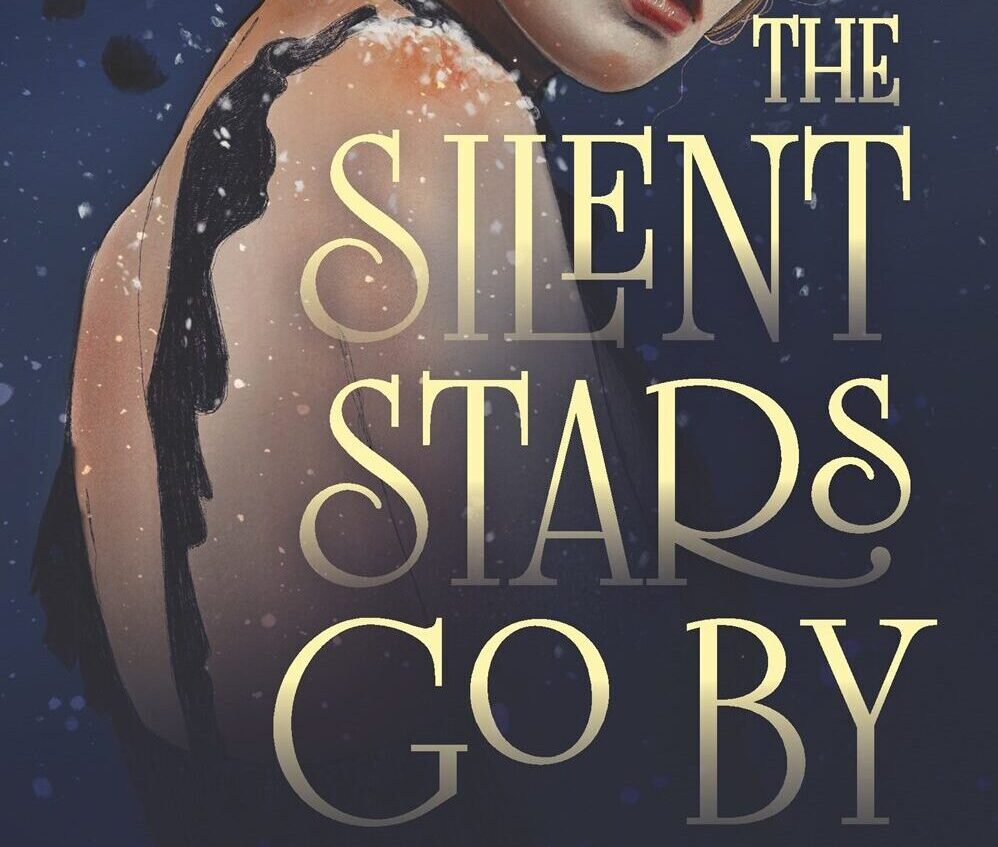JOCELYN
The station at thwaite was a one-platform village halt with a single sad-looking flowerpot and not even a shelter from the wind. Jocelyn was waiting on the platform, and Margot felt a sudden, unexpected rush of love at the sight of her—her hair falling down out of her hat and her hand-me-down coat hanging rather lumpishly at the back. Darling Jos. It was so nice to be somewhere where people loved you.
The sisters embraced. “Hullo!”
“Hullo, yourself. Where’s Mother?”
“Presiding over schoolroom tea. Ernest’s train got in just after luncheon. You remember what a beastly lot of fuss there always is.”
“Heavens, yes.”
They exchanged rueful glances.
“You’d think no child had ever been sent away to school before Mother’s boys,” Margot said. “Stephen home yet?”
“Not till next week. Is that all your things? Father’s got the car this afternoon, so we’d better find a porter to take them up to the house.”
“Fancy us with a car!” Margot gave her younger sister a real smile. “Oh look—there’s a porter there! I say!”
With the suitcases safely handed over, the sisters set off through the village toward home.
How lovely it was to be back. Each time, the feeling of home surprised her: the clear air, so different from the coal smoke of Durham; the dales above the village and the fields below; the particularly Yorkshire scent of frost and sheep-farming countryside. Home.
The vicarage was a rambling early-Victorian affair. It had been built in the days when vicars were expected to produce eight or nine children for the good of the Empire and—Margot’s mother often said—had been bleeding its occupants dry ever since. It was a huge, drafty building, forever in a state of general disrepair. The chimneys smoked, the windows rattled, and it was furnished with a mixture of dilapidated odds and ends left behind by previous vicars and their families. It was always cold, even in the middle of summer. In winter, ice froze in the bedroom jugs and on the windowpanes, and everyone had chilblains despite untold layers of woolen underwear and petticoats. Four children still at home, and the perpetual impossibility of finding servants, on top of her duties as the vicar’s wife, meant their mother lived in a state of permanent exhaustion. The garden was a tangled wilderness of fruit trees, chickens, and scraggly vegetables.
The Allen children were accepted eccentrics, bright, bookish, and insular. Their childhood had been one of private games and fierce alliances. Margot had always been the odd one out. While her siblings were angular and awkward and—why not say it?—plain, Margot was something of a beauty. This, in a family that considered humility to be next to godliness, was not always an advantage. Margot was not stupid—none of the Allen children were—but she’d had a reputation as “difficult” from early childhood.
This sense of difference had played out, Margot remembered, as an intense determination for something that was “hers.” Toys in the Allen nursery were generally held communally, clothes and other possessions were handed down to younger siblings, and a common front was expected to be presented. Family honor was so important that Margot
had once grumbled that anyone would think they were a duke’s children instead of a clergyman’s.
To be different was . . . not exactly frowned upon, but definitely considered “up yourself.” “She’s no better than she ought to be” was one of Nanny’s greatest slurs. If a vicarage child did well at something—and they generally were somewhere near the top of their classes—they were expected not to make a fuss of it, to say thank you for any praise, and to politely change the subject. Demurring “Oh, I’m rotten at Latin, really” was considered “affected,” but boasting was considered “stuck-up” and was even worse. Margot could still remember bouncing home aged nine, delighted because a stranger in the street had described her as “a most striking child.” She had been firmly sat upon by her older brother, Stephen, and told by her father to “Consider the lilies of the field.”
“The ones that toil not, neither do they spin?” she’d said. “Does that mean I’m excused chores?”
Margot knew she was considered stuck-up. She had been christened Margaret, a name she had always hated, and had changed it to Margot at fourteen, refusing to answer to Margaret until her family had had to admit defeat. She knew Stephen and Jocelyn and even Ruth had always considered her something of an ass. None of them cared about how they looked. But Margot had always loved beautiful things. When the Hendersons at the manor house would bring weekend guests to church, she would sit and stare at their dresses. There was never enough money to go around in the vicarage. Margot had spent her childhood in hand-me-downs from various cousins and homemade creations run up on the Singer sewing machine by Mother.
She had an eye for color and line, and a determination to look good. Even now, after all her troubles, she still kept her hair carefully smoothed back, her eyebrows plucked, her fingernails manicured.
Nowadays, that dissatisfied, out-of-place girl seemed very long ago and far away. Nowadays, Margot wasn’t difficult. She wasn’t much of anything, really. Sometimes she felt as though all her personality and contrariness had been washed away, leaving something limp and wet-raggish and spinsterish, if you could be such a thing at nineteen.
Or perhaps she had just grown up.
As a child, she had often wondered if she were a foundling, or perhaps swapped at birth. It would be just like her father to take on a villager’s child in need of a home. Except, of course, Margot’s mother wouldn’t be a villager, really—she would be an earl’s daughter fleeing disgrace. Meeting her father by chance on her desperate flight, she had been so struck by his goodness, she’d sworn him to secrecy. And now her brothers had all been killed, and the family was coming to find their one true heir . . .
It was a childish enough story, and of course she had known it wasn’t really true. She had the look of her grandmother anyway, and the same fair hair as Stephen and Ernest (Jocelyn and Ruth tended more to mouse). But she could still remember the awfulness of feeling so out of favor, so much the odd one out. Margot supposed that her mother loved her. But she had never been entirely sure that she liked her.
At least her mother liked James. Margot was grateful for that every . . . well, every time she reminded herself to be, which was less often than she ought. Her mother loved James. Though how anyone could do anything but love him!
“How’s James?” she said abruptly to Jocelyn.
Jocelyn, who had been waiting for this, gave a private grimace.
“He’s well. You’ll see—we’re to join them for nursery tea. He’s talking so much more than when you saw him at half term!”
“And he’s . . .” Margot knew she was being a dope, but she said it anyway, as she always did. “He’s happy?”
“Yes, he’s happy.” Jocelyn looked at her sister. “He’s a very happy child, Margot. Mother and Father treat him just the same as they do Ruth and Ernest. You don’t need me to tell you that.”
Margot stiffened.
“I do, though, don’t I?” she said. “That’s the whole problem.”
Copyright © 2022 by Sally Nicholls. All rights reserved. No part of this excerpt may be reproduced or reprinted without permission in writing from the publisher.







